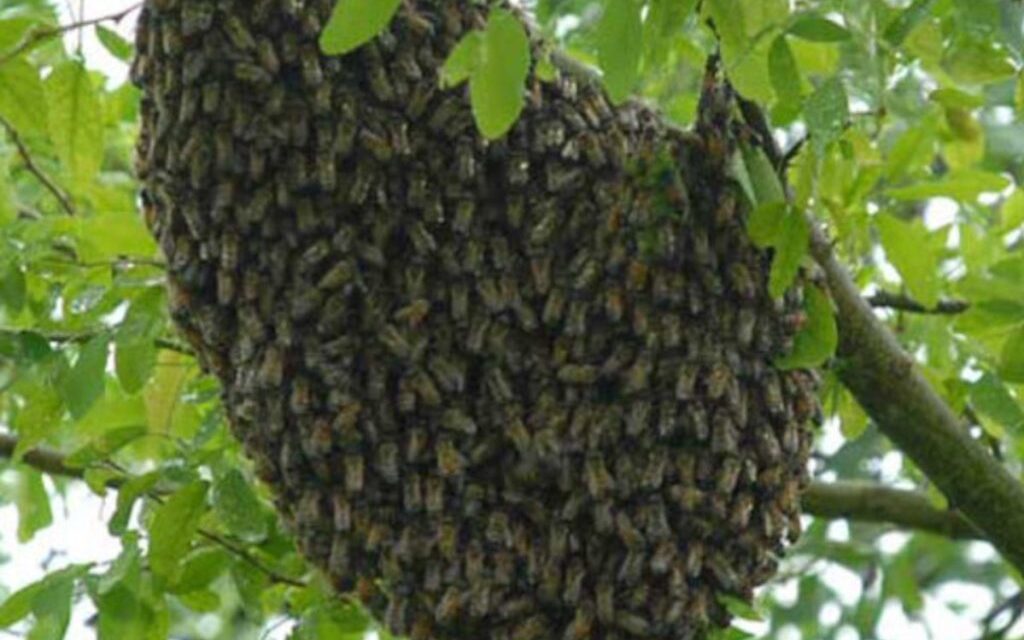The Alabama Department of Agriculture and Industries (ADAI) Tuesday announced that feral swarms of Africanized honeybees have been found in Jackson and St. Clair counties.
Both finds were collected by beekeepers and have been euthanized to protect Alabama’s honeybees.
In an announcement, the department said it is taking “swift action” to mitigate any risks associated with the bees.
Africanized Honeybees, or AHB, differ from European honeybees, or EHB, in behavior, not appearance. They can be highly defensive and pose a risk to humans and animals.
Officials say it is important to avoid provoking any swarms and to seek professional assistance for bee removal.
Neither European nor Africanized honeybees will indiscriminately attack humans or animals.
However, AHB are more defensive, more easily disturbed and respond in greater numbers than EHB.
They will pursue a perceived threat for more than a mile. They also swarm more frequently – every six weeks, as opposed to once a year for European honeybees.
For bees, stinging is a defensive behavior employed by the colony to protect young bees and their food supply.
African honeybees will also nest in any available cavity or in the open.
That includes places like water meter boxes, metal utility poles, cement blocks, junk piles, and house eaves. Other potential nesting sites include overturned flowerpots, old tires, mobile home skirts and abandoned structures.
Holes in the ground and tree limbs, mailboxes, even an empty soda pop can could be viewed as “home” to the AHB.
The department says traps are being set up within a five-mile radius of the detection sites to assess the extent of the Africanized honeybee population and prevent future attacks. Officials also hope to capture and identify any further presence of AHB.
The department is reaching out to all beekeepers in the area to report any suspicious bee activity.
“Our goal is to protect both our residents and the health of our local bee populations,” Commissioner of Agriculture & Industries Rick Pate said.
The public is being asked to report any unusually aggressive bee behavior to the State Apiary Unit at (334) 240-7228 or (334) 240-7172. For any additional information about honeybees, visit the website.











